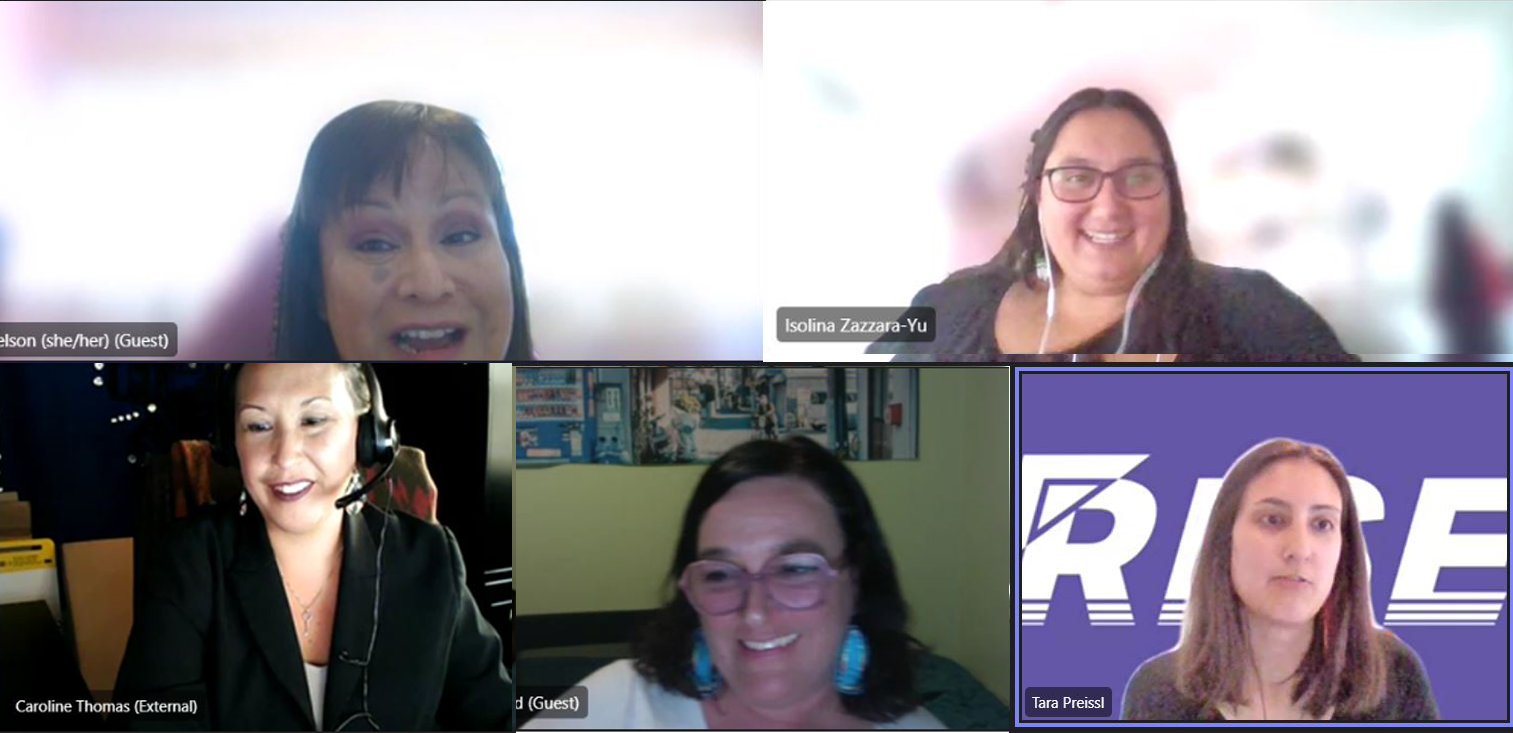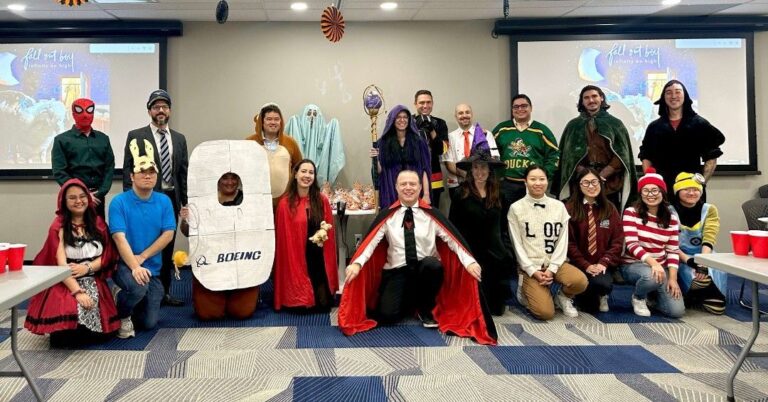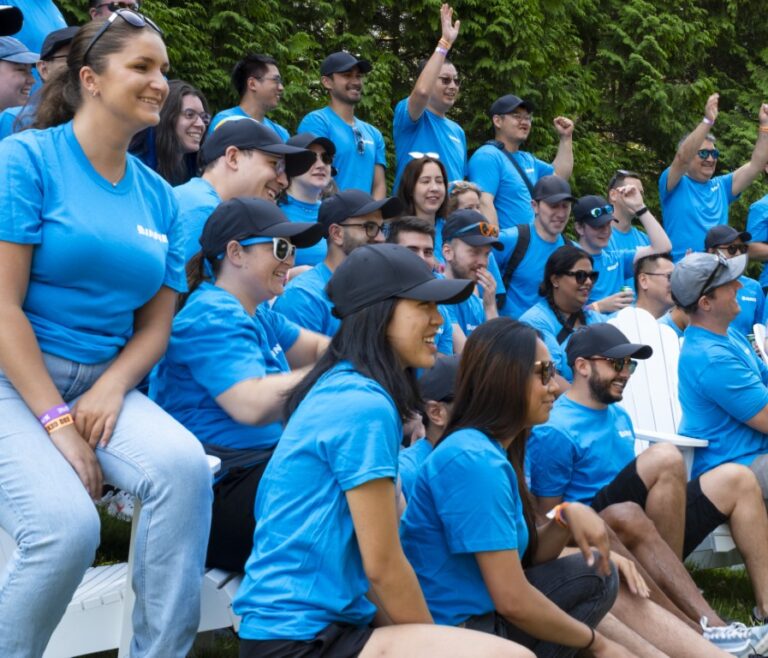 On August 16th 2022, over 60 RISE Members and Allies participated in a special panel presentation featuring three Indigenous Matriarchs:
On August 16th 2022, over 60 RISE Members and Allies participated in a special panel presentation featuring three Indigenous Matriarchs:
- Joanne Nelson, Ts’msyen (She/Her) – PhD Student, Institute of Resources, Environment, and Sustainability (IRES) at the University of British Columbia (UBC)
- Caroline Thomas, xʷməθkʷəy̓əm (She/Her) – Executive Assistant, Native Education College
- Kamala Todd, Métis and Cree (She/Her) – Adjunct Professor, School of Community and Regional Planning, UBC and School of Urban Studies, Simon Fraser University (SFU)
This event aimed to provide space for Indigenous voices by highlighting successful initiatives and practices in our industry and outlining opportunities for RISE allies and members to uphold this work. Panelists shared their knowledge, insights, and experience working on Indigenous led or Indigenous-influenced projects across so-called British Columbia and provided advice on how settlers can work alongside Indigenous folks on projects that shape cities and lands.
One of the successful projects discussed was the leləm project where Binnie was previously involved at the masterplanning stage. Panelist Caroline Thomas, a xʷməθkʷəy̓əm band member and former Administrative Assistant with Musqueam Capital Corp. noted:
“Leləm is Musqueam’s first project. We’re creating the pathway not only for surrounding communities, but also for other onlooking communities who haven’t had such a chance to develop lands…What it means watching that project come to fruition…it brought tears to my eyes. It’s for the legacy of my children, for my grandchildren, for my great grandchildren, for my community members, and my elders.”
Panelist, Kamala Todd shared about her ongoing successful work with the City of Vancouver, where she originally started her career in the early 2000s. About her early role at the City, Kamala said:
“There were no Aboriginal specific positions in the City. I just called myself Aboriginal Social Planner.”
Kamala continually supports the City and is currently providing advisory services for the implementation of the United Nations Declaration for the Rights of Indigenous People (UNDRIP) at a council-to-council level in the City where she is working with xʷməθkʷəy̓əm, Sḵwx̱wú7mesh, and Tsleil-Waututh Nations, city planners, and elected officials.
Panelist Joanne Nelson told RISE Members and Allies about her recent work with the Decolonizing Water project and her field work for her PhD, both of which involve creating access to water and natural elements for urban Indigenous folks. When asked for the advice she would share with settlers about collaborating successfully with Indigenous communities, Joanne noted that settlers should remember to have meaningful incorporation of Indigenous values in every project:
“Resist that urge to tick off that box. [You] don’t want to tokenize values.”
RISE is honoured to have hosted this landmark panel event and raises our hands in respect and acknowledgement to the three fearless matriarchs who joined us last Tuesday. T’oyaxsut nüün Kinânaskom’ti. hay čxʷ q̓ə. Maarsi. Thank you.
About our Panelists:
Joanne Nelson is a Ts’msyen woman who grew up in the northwestern BC communities of Port Edward and Prince Rupert where she gained a tremendous appreciation for nature. She is from Lax Kw’alaams First Nation on her mother’s side and Kitsumkalum Band on her father’s side. She is a PhD candidate with IRES and is completing her field work research using arts-informed methods within the urban Indigenous community.
Kamala Todd is a Métis, Cree, and German from Red River Métis Settlement with roots in many Cree and Métis homelands including St. Paul des Métis settlement, Lac La Biche, and Whitefish Lake. With a Masters Degree in Urban Geography from UBC, she started her career as an Aboriginal Arts and Culture Planner with the City of Vancouver. Currently, Kamala is an adjunct professor at UBC’s School of Community and Regional Planning (SCARP) and SFU’s School of Urban Studies. She also presents and guest lectures, makes films, facilitates dialogue, and advises on Indigenous issues.
Caroline Thomas was born and raised in xʷməθkʷəy̓əm territory, and her ancestral name is Nopowah. She is a parent to two children and has worked in development and real estate offices for her entire career, prior to transitioning to a role as the Executive Assistant to the President and Board of Directors at the Native Education College in 2021.
About RISE
Binnie is committed to supporting women in the consulting industry through our staff-led RISE initiative, which is a program that supports employees at Binnie who identify with the female-lived experience in the engineering workplace. RISE’s mission is to raise female voices in a collaborative and goal-driven environment through regular events that connect and empower change.


